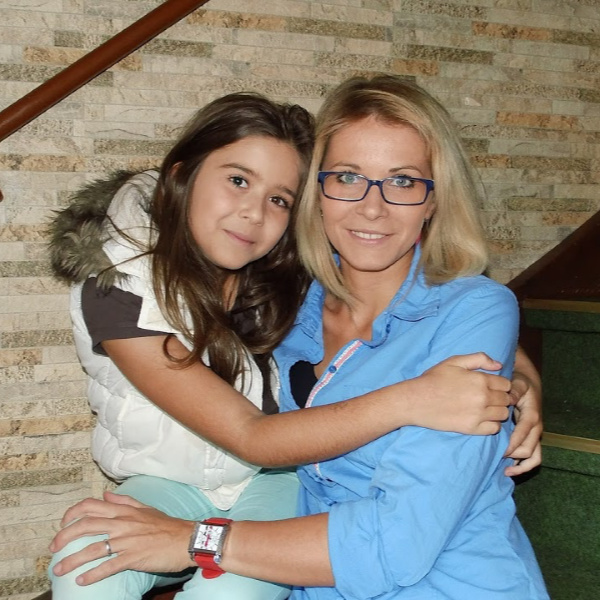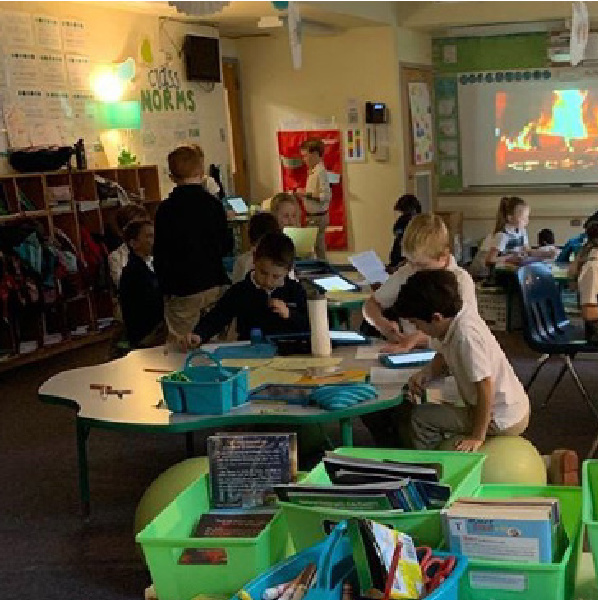Planning Your Virtual Parent Teacher Conferences
This year is a bit different when it come to planning your virtual parent teacher conferences. We never HAD to do them virtually until this crazy year. But now we are tasked with figuring this out (along with everything else….RIGHT???)
Below I’m going to give you some helpful tips that will hopefully make this task a little simpler and less overwhelming for you.

The Steps for Planning your virtual parent teacher conferences.
There are a couple of steps to take to prepare for your upcoming virtual parent teacher conferences. The first entails creating a positive communication strategy ahead of time by sending a number of positive emails home to your student’s parents before conference time comes around.
If it’s already that time, send a positive note today by sending the same note to all parents. Just make it general about how you are impressed with the students this year, etc…. even if you’re not sure if you’re really impressed or not. LOL
Create a Schedule for Conferences
Next, you will need to create a schedule for all the parent conferences. You might want to consider sending an email to ask if they have a preferred time (since you may need to work around their own work schedule).
When figuring out how to schedule, be sure to keep into consideration the need for extra time due to technical issues. Some parents are not familiar with online meetings such as ZOOM (and other formats). I suggest that you send an email 15 minutes before each meeting with the instructions listed for the parents.
What to EXPECT
Another great idea is to let the parents know ahead of time what to expect during the virtual meetings. And also if you want them to prepare in any way, such as a list of any questions they may have for you. Here is a sample email I would send regarding this (which should be sent out three days before the meeting so parents have time to draft their questions).
Dear Parents,
I am looking forward to speaking to you virtually in three days to review your child’s progress so far this school year. Here is what we will review during our time together.
(1.) Your child’s progress in each subject area (grade so far). (2) Your child’s behavior and how he/she interacts with classmates. (3) Your child’s strengths that I have been able to note. (4.) Your child’s struggles and my plan to help him/her. (5.) Any other item we decide to discuss.
In order for this meeting to be as productive as possible, I hope that you will take a few minutes to jot down any questions you may wish to ask me about your child’s progress thus far.
Again, I look forward to meeting with you virtually in three days.
Sincerely,
Do you see how this quick email gives them an overview of what to expect during your meeting?

Come Prepared for the Meeting
You need to have some items ready for this parent meeting. A few of them that I can think of are: the student’s report card, any assessment data, the contact information, some work samples, and any pertinent notes you want to refer to when discussing their child.
Always review the parents’ contact information. Many times there are moves, new phone numbers, or new email accounts that you will need to get. If there’s been a change, make sure you share this with the office also.
Use a “sandwich concept” to address concerns
I bet you’re asking, “What’s a sandwich concept?” Well, this is just a strategy to help parents internalize a negative concern. Let me give you an example. Let’s say that you need to explain that their child still has not mastered the “times tables (multiplication facts).”
The way the sandwich method works is that the concern is the “meat” in the sandwich. You need to offer two items of praise or compliments – which signify the “bread” in the sandwich.
Here’s an example:
“Angie is a very strong reader. She is exactly where she needs to be in reading. However, in math she still needs to learn her multiplication facts. Is there a way you can help her learn these at home? She is starting to fall behind because she has not yet mastered them. Also, I want to be sure to let you know that she has an “A” in Social Studies. She seems to enjoy this subject and always asks questions and participates in discussions.”

Questioning Parents
When you are thinking of questions to ask your students’ parents, try to phrase then in an open-ended fashion. Ask them what they think their child’s strengths are? ETC…
One item I always like to ask parents (especially when I taught primary grades) was if there was any problem or issues when their child was an infant or toddler (or at birth). You would be amazed at the new information you sometimes get about their early development (which might explain some of the difficulties they are having). Often, it will also give you insight on how you can communicate and relate with the student.
Take and Keep Notes
I realize I shouldn’t have to list this one, but for any brand new teachers, I want to be sure to emphasize the importance of putting things in writing and not trying to rely on your memory for everything. Plus you may need to refer back to these notes at the end of the year if the parents say you never discussed things with them.
Just in case there are some new teachers reading this, here is another article I wrote to help new teachers. You can read it here:
20 Tips for Beginning Teachers
Before I conclude, I want to be sure to offer you my FREE downloadable list of “10 ways to Impress Your Principal.” I will zip it right over to your email after you complete the enrollment below.
**
My final recommendation for this new type of parent conference using virtual methods (in place of in person) is to be sure to follow up on any concerns the parent has about their child.
You need to always remember that while their child on only ONE of your 20+ students, he/she is VERY SPECIAL to them. If they are concerned about their child making friends, try to help with this if you can. If they are concerned about an academic subject, find ways to boost this up if possible.
All these small actions will be BIG for that child and for those parents. And they will remember it in a positive way – OFTEN FOREVER!
Until Next Time,







